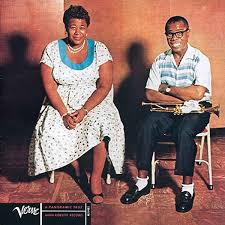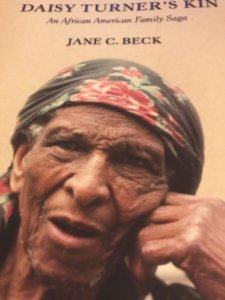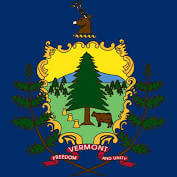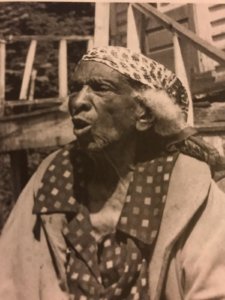Sing:
Hark the Vesper bell is pealing,
O’er the meadow soft and green.
Nearer now and nearer stealing,
Soft it breaks upon my ear.
Jubilate, jubilate, jubilate, amen. Jubilate, jubilate, jubilate, amen.
First Words: Whether or not camp is in session, the date for the first Saturday in third session is always the date for thinking about Vermont! Old Vermont Day, a favorite Saturday program for many years now, connects Sangamon and Betsey Cox community members to the roots of our two camps: Vermont! Vermont and Vermonters are unique! Today’s Vespers gives us the chance to know Vermont and some Vermonters on a deeper level!
Sing: “The Vermont State Song, These Green Mountains,” by Diane Martin (performed by Mt Anthony High School)
Note: In 2000 Diane Martin’s song was selected by Vermonters to be the State song. The Vermont Arts Council held a competition to choose the song. 107 songs were submitted and 8 finalists were determined. It’s interesting that the name “Vermont” does not appear in the song, but the words present images so strong that anyone having been here will recognize the state! Here is the link to a beautiful version of this well-loved song (here at camp and broadly). Listen and sing along!! For third-session community members, you’ll remember the array of native Vermont people at camp leading us all in the song from the balcony in the lodge.
These green hills and silver waters,
Are my home, they belong to me.
And to all her sons and daughters,
May they be strong and forever free.
Let us live to protect her beauty.
And look with pride on the golden dome.
They say home is where the heart is.
These green mountains are my home.
These green mountains are my home.
Poem: ” No Vermonters in Heaven”, by Dr. Ernest Johnstone in 1915
I dreamed that I went to the city of gold,
to Heaven resplendent and fair;
And, after I entered that beautiful fold,
by one in authority there I was told,
that not a Vermonter was there!
“Impossible”, said I.
“A host from my town have sought this delectable place,
and each must be here with a harp and a crown,
a conqueror’s palm and clean linen gown
received through merited grace.”
The angel replied, “All Vermonters come here
when first they depart from the earth,
but after a day or a month or a year
they become restless and lonesome and homesick appear
and sigh for the land of their birth.”
“They tell of its many and beautiful hills,
where forests majestic appear;
its rivers and lakes and its streams and its hills
where nature the purest of water distills,
and they soon get dissatisfied here.”
“They tell of ravines, wild, secluded and deep,
of clover decked landscapes serene,
of towering mountains, imposing and steep,
down which the torrents exulting leap
through forests perennially green.”
“We give them the best that the kingdom provides,
they have everything here that they want;
But not a Vermonter in Heaven abides.
A very short time period here he resides,
Then hikes his way back to Vermont.”
Sing: ” Give yourself to Love”, by Kate Wolf
Note: This beautiful song is a favorite at camp. It describes the way we live here and it focuses both on the beauty of our Vermont hillside and on the friendships that we develop while at camp. 
Kind friends all gather round,
There’s something I would say.
What brings us together here has blessed all today.
Love has made a circle that holds us all inside,
Where strangers are like family,
And loneliness can’t hide.
CHORUS:
So give yourself to love.
If love is what you’re after.
Open up your heart to..tears and laughter,
Yes, and give yourself to love.
Give yourself to love.
We’ve walked these mountains in the rain.
We’ve learned to love the wind.
We’ve been up before the sunrise,
To watch the day begin.
I always knew I’d find you, but I never did know when.
But like sunshine on a cloudy day,
You stand before me now.
CHORUS
Love is born in fire, it’s planted like a seed.
Love can’t give you everything but it gives you what you need.
Love comes when you’re ready,
Love comes when you’re afraid.
It will be your greatest teacher,
The best friend you have made.
CHORUS
Vermont Trivia: a learning game!
Note: On Old Vermont Day, third session community members take time through the day to learn some important facts about the state in which we live. Knowing about a place, knowing deeply about a place, results in caring about that place! Today, if we were sitting in the cool shade of the birch grove, we would circle up in cabin groups and see if we can learn more about this very special state. See if you and those with you today can answer these questions! Answers will show up at the end of Vespers!
- Vermont’s geography is dominated by the northern range of the Appalachian mountain chain. How many mountain peaks are there in the state?
- Lake Champlain, on which many of you have sailed, is a BIG lake. Is it the sixth, tenth, 15th biggest lake in our country?
- What mountain is featured on the Vermont state quarter? Hint: many of you have climbed it! And it is NOT Mount Mansfield!
- Those of you who come to camp from another state should notice something very different about what you see on the roads in Vermont. What is that difference?
- Right now in our country there are new rules affecting the way the United States Postal Service operates. Way back in 1846, something quite dramatic happened in Brattleboro, Vermont that changed the way mail would be managed. What happened there? Can you guess?
- There is a ski area in Vermont called “the Beast of the East.” The area covers seven Vermont peaks and the mountain has been climbed by many BC campers and staff. What is the name of this ski area/mountain? HINT: Alex Gonzalez, Camp Betsey Cox staff member, has worked there!
- Alexander Twilight is the first African American to earn what? He did it in Vermont!
- In 2000, the Cabot Creamery of Vermont (the very same one from which we buy our camp cheddar cheese), won an award for making the world’s largest grilled cheese sandwich! How much do you think it weighed? (Hint: it was five feet by 10.5 feet by 2.5 inches thick!). Note: Camp Meade in Middlesex, Vermont, holds the world’s record for having made the largest s’more!
- How many Native American tribes continue to live in Vermont?
- True or False! There are still relatives of Betsey Cox living in Pittsford.
Sing: ” Moonlight in Vermont, “ by John Blackburn and Karl Suessdorf
Note: This song was once the State song. But in 2000 it was decided that the song was too difficult for most Vermonters to sing! That’s how the song we now sing together came to be!
Here are Ella Fitzgerald and Louis Armstrong singing Moonlight In Vermont, and here are the lyrics! Try it out! As you do, remember how much YOU love the moonlight as it sifts over camp, around your cabin and onto the main yard. 
Pennies in a stream
Falling leaves the sycamore
Moonlight in Vermont.
Icy finger waves.
Ski trails down the mountain side.
Snow light in Vermont.
Telegraph cables they sing down the highway
And travel each bend and the road.
People who meet in this romantic setting
Are so hypnotized by the lovely
Evening summer breeze
The sweet warbling of the meadowlark.
Moonlight in Vermont.
Evening and moonlight in Vermont.
A TRUE STORY: Vermonters take great pride in the qualities that make most of them strong, resilient people. When the ancestors of the first non-native Vermonters arrived, life was challenging. Very cold winters and thick woodland terrain made it difficult for these settlers to survive the challenges. And yet…they did. Those people born and raised now in Vermont look back to these hearty people for inspiration. Two weeks ago Daisy Turner’s life provided us just that sort of inspiration. Daisy Turner was born in 1883 to Alec Turner. Alec Turner was born a slave. Through a number of unusual happenings he and his wife Sally, following the Civil War, made it to Vermont. Daisy lived in Vermont until 1988 and her story has been told in a book titled DAISY TURNER’S KIN: AN AFRICAN AMERICAN FAMILY SAGA by Jane C. Beck.  Jane Beck had the chance to meet Daisy and the book is a powerful accounting of Daisy’s resilience even as a young girl. She was a true Vermonter. Here are some of her words as she recounts an experience she had as a nine-year old child at school in northern Vermont. The school children were working on a presentation to their families as follows:
Jane Beck had the chance to meet Daisy and the book is a powerful accounting of Daisy’s resilience even as a young girl. She was a true Vermonter. Here are some of her words as she recounts an experience she had as a nine-year old child at school in northern Vermont. The school children were working on a presentation to their families as follows:
“The teacher, Miss Edison, wanted the children to take dolls of different nationalities and learn verses about the country or region. Miss Edison asked Daisy to take the black doll that would represent Africa….Although she liked nothing about this proposal, she said she would discuss it with her parents.”
Alec and Daisy talked after dinner. Here is Daisy’s description of their conversation:
“I told him that the teacher wanted me to say a little verse or two and take this black doll in this little dialogue that we was going to have, and what did he think about it….I kind of hesitated, and he asked did I want to do it. I said I didn’t mind if it was all right….
He began telling about the houses that were built by different men, and how the colors were put on by painting them, and each one did that, the way they thought they liked it best….No one could say which one was the prettiest or the nicest, but each one was satisfied. Then he told me about the trees, and how some had leaves, and the leaves fell in the fall, and the others were evergreens and never changed, but always were the same. And how lovely each one of them was. And who could say or decide which was the loveliest one or the nicest one of the trees in the forest. Each one decided those kind of things for themselves. So, that was all right.
Our family was very peculiar. They were all colors. That’s why I wonder now why they say ‘black’ because there wasn’t any of us black, but we were light and tan and cream and some of them so white that you couldn’t tell whether they had any Negro blood at all in them. Father was a very peculiar color because his mother was a Cherokee Indian….So Father talked, and then he prayed a little prayer…He said it was all right for me to take the little verse and to do what the teacher wanted.”
The story goes on and as the performance day drew nearer, Daisy found herself less and less happy about presenting a rhyme the teacher had written that did not speak to her own feelings of being black. The night of the performance she argued with the teacher about the rhyme and about having to present at all. The teacher was insistent. And here are Daisy’s words about what then transpired:
“Finally, I grabbed Dinah (the doll) by one arm, because I was very, very angry….So, instead of going out nicely and …saluting like the teacher had taught us to…I went out….holding Dinah with one arm….So instead of saying the two verses they had taught me to say,….I was very angry and my voice was raised high—mother didn’t allow us to raise our voices—but my voice was very high. And I said:
You needn’t crowd my dolly out,
Although she’s black as night
And if she is at the foot of this show
I think she’ll stand as good a chance
As the dollies that are white.
My daddy said that half the world
Is almost black as night
And it does no harm to take a chance
And stay right in the fight.
So sit up, Dinah, and look straight
At the judges on the right
And I’ll stand by your side
If I do look a fright.
The teacher’s face as all can see
Is redder than a beet.
And Daddy’s come down from the back
And led her to her seat.
She gave to me that famous Turner look.
So I’ll sit down and shut my mouth up tight
Just like a book.”
At nine years old, Daisy Turner took a stand! The evening activity ended with the awarding of a prize for the most effective nine-year old speaker. Daisy assumed she would be out of the running since she had refused to say the proper piece and since the words that flowed from her heart were angry rather than compliant! Remember, this happened in the late nineteenth century! But could it happen today? Of course! In this nineteenth-century situation, offsetting Daisy’s “inappropriate behavior” was the fact that Alec Turner and his family had been outstanding citizens of the town of Grafton, Vermont. Though they were the only African-Americans in town, Alec and Sally were hard-working, generous people and were liked, admired and respected. Thus…the happy ending to Daisy’s story that evening long ago was that she won the prize for her performance.
Daisy Turner clearly was not the usual nine-year old in Grafton, Vermont. As an African American, she and her siblings and parents were unconventional in background and culture. But strong, committed to the good, hard-working and forthright, they do represent qualities that Vermonters admired then and should admire now. Daisy’s story is worth a careful read! It is inspiring.
Old Vermont Day usually does not touch on current Vermont issues. But in this particular moment, with challenges around every turn, it feels important to pause to have a good think about the qualities that can be found in studying the lives of Vermonters who have come before those here now. Some of them have names you may recognize: Ethan Allan, maybe Dorothy Canfield Fisher (leader in developing Montessori teaching methods and author), John Deere (founder of a company that makes agricultural equipment to this day), John Dewey (educational reformer), Patty Sheehan (golfer and skier), Jody Williams (winner of the Nobel Prize for Peace in 1997 for her work in Nicaragua and Honduras), Madeline Kunin (one of the first female governors in the country). There are many others to discover and to inspire us. Each found courage and strength to face challenging questions and situations, as did Daisy Turner. On this Old Vermont Day, think about the many days when you breathed deeply of the special Vermont air infusing camp. Think about how the old informs the new and feel inspired to be your best person as you go forward onto whatever stage in life you choose.
Sing: “A VERMONT SONG”, sung to the tune of America the Beautiful
My heart is where the hills fling up,
Green garlands to the day.
Tis where the blue lake fills her cup,
The sparkling rivers play.
My heart is on the mountain now
Where ‘ere my steps may go.
Vermont, oh maiden of the hills,
My heart is there with thee.
A Poem: by Anonymous
I love the deep quiet of my
Vermont country home.
I love the seasons as they
unravel and come to splendor.
I love the pace that we
live, busy but not too busy.
But my compass points direct
always to these mountains
Silence
Jubilate, jubilate, jubilate, Amen. Jubilate, jubilate, jubilate, Amen.
Answers to the Vermont trivia:
- 200
- 6th
- Camel’s Hump
- No billboards allowed
- Invention of the postage stamp
- Killington
- Earned a college degree
- 320 pounds
- 2
- True




